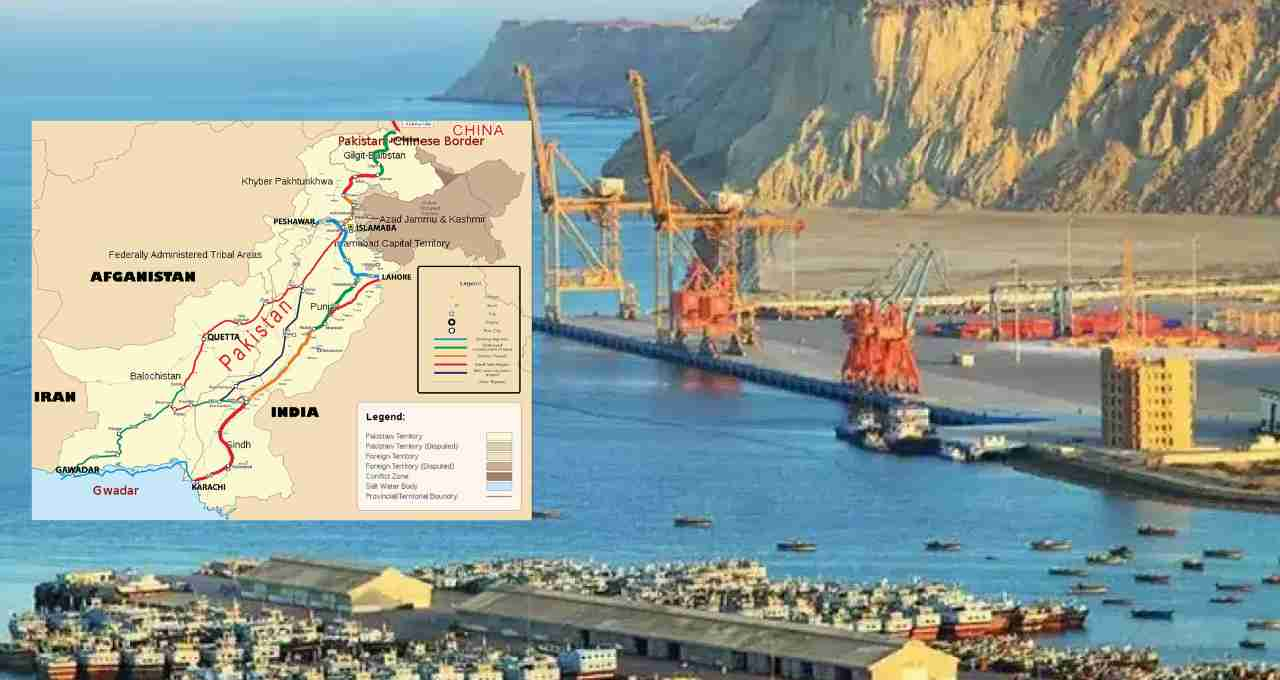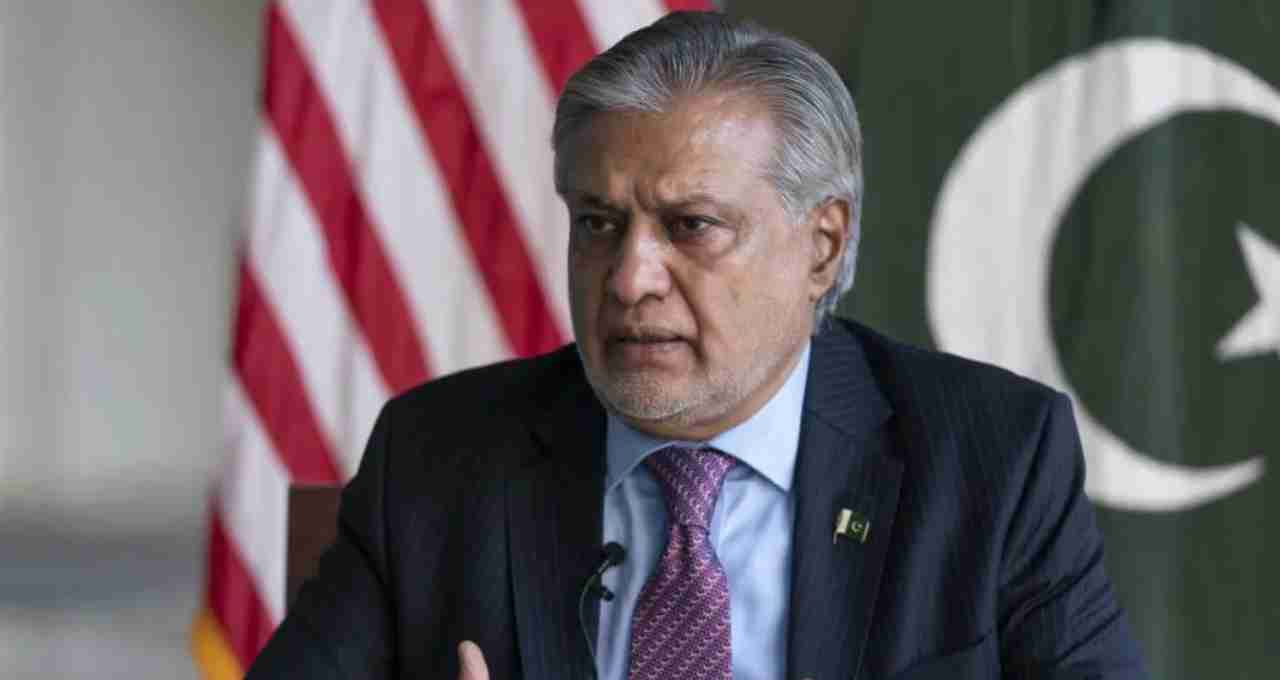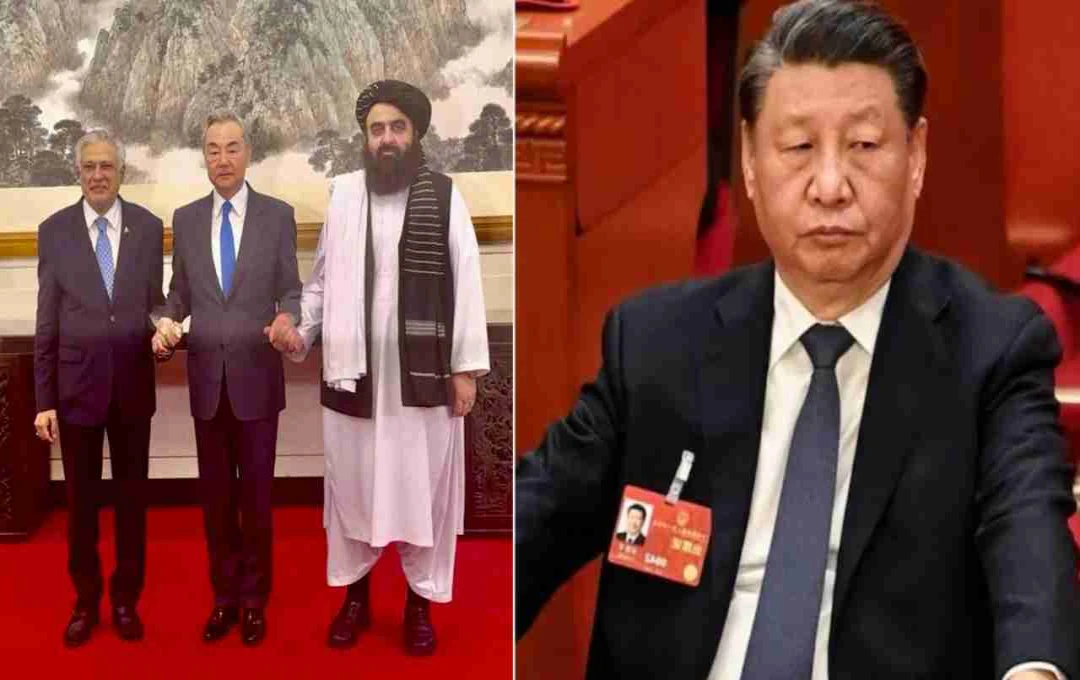China, Pakistan, and the Taliban government have agreed to extend the CPEC project to Afghanistan. India has opposed this, calling it a violation of its sovereignty.
CPEC Project: A recent informal trilateral meeting took place in Beijing between top officials from China, Pakistan, and Afghanistan. The meeting included the foreign ministers of the three countries: Wang Yi of China, Pakistan's Deputy Prime Minister and Foreign Minister Ishaq Dar, and Afghanistan's (Taliban government) acting Foreign Minister Amir Khan Muttaqi.
The main agenda was the plan to expand the China-Pakistan Economic Corridor (CPEC) into Afghanistan. The three countries agreed to jointly advance this project and enhance cooperation in regional stability, peace, and economic development.
What is CPEC and why is it significant?
CPEC, or the China-Pakistan Economic Corridor, is a major component of China's "Belt and Road Initiative" (BRI). Its estimated cost is around $60 billion. This corridor connects China's Xinjiang province to the Gwadar Port in Pakistan. It includes projects such as highways, railways, power plants, special economic zones, and telecommunication infrastructure.

CPEC has significantly benefited Pakistan's infrastructure development, while simultaneously enhancing China's trade access and strategic influence.
Why Afghanistan now?
Following the Taliban's return to power, Afghanistan has become internationally isolated. Its economic situation is dire, and foreign investment is negligible. Connecting Afghanistan via CPEC is therefore considered beneficial to all three countries.
China has an interest in Afghanistan's mineral resources, while Pakistan seeks to open trade routes to Central Asia via Afghanistan. The Taliban government, which has yet to be recognized by most countries, views this corridor as an opportunity for economic reconstruction.
Pakistan's Statement:
Pakistan's Foreign Minister Ishaq Dar shared a picture of the meeting with Chinese and Afghan leaders on social media, writing, "Pakistan, China, and Afghanistan stand together for regional peace, stability, and development."

He also stated that the three countries agreed to work on mutual diplomatic dialogue, trade frameworks, and infrastructure development. The central focus of this trilateral agreement will be the expansion of CPEC.
India's Concerns:
A significant portion of CPEC passes through Pakistan-administered Kashmir (PoK), which India considers an integral part of its territory. India has repeatedly opposed CPEC, viewing it as a violation of its sovereignty.
With China and Pakistan now preparing to extend it to Afghanistan, India's security and strategic concerns have deepened. China's growing involvement in Afghanistan could pose a significant geopolitical challenge to India.
Potential Benefits of CPEC Expansion:
- Economic revival for Afghanistan – Long war-torn Afghanistan could receive infrastructure, electricity, roads, and employment opportunities.
- Strategic gains for China – Afghanistan would provide China with trade routes to Central and West Asia.
- Diplomatic win for Pakistan – Pakistan could enhance its importance by mediating between China and Afghanistan.
India's Policy:
India has consistently opposed CPEC, stating that the project violates its territorial rights. India has bly voiced its opposition to CPEC in the United Nations and other international forums.
India will now need to implement its "Connect Central Asia Policy" more vigorously. Furthermore, India can emphasize maintaining its engagement in Afghanistan in areas such as education, health, and humanitarian assistance.
Taliban Government's Strategy:
The Taliban government in Afghanistan sees CPEC as a significant opportunity. Cooperation with China and Pakistan could provide not only economic assistance but also a diplomatic step towards international recognition.
However, experts suggest that if local communities are not included or the Taliban does not change its past practices, the project could become embroiled in controversies.













